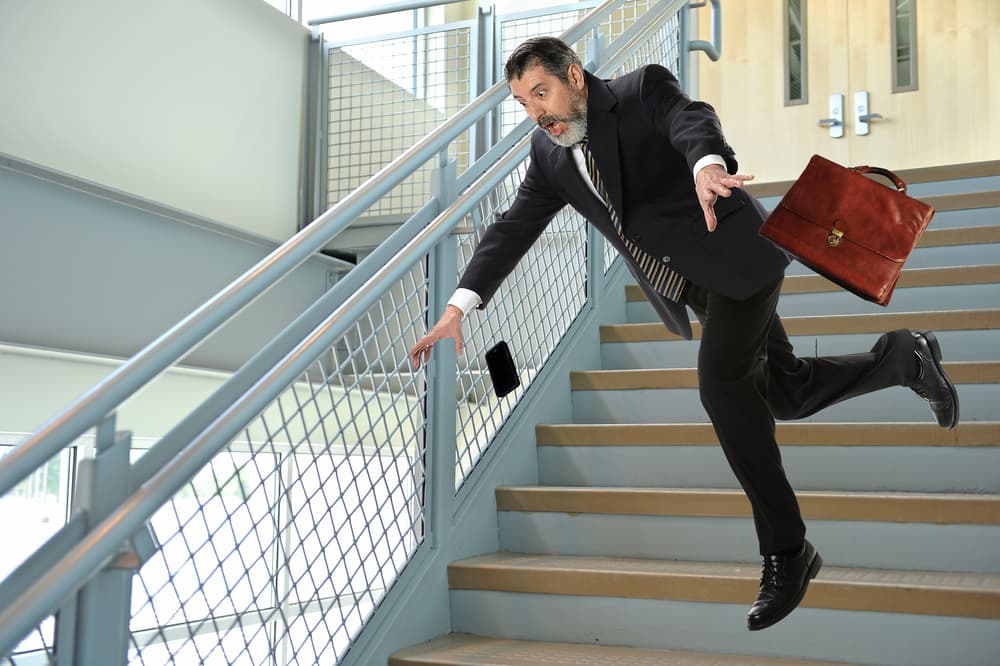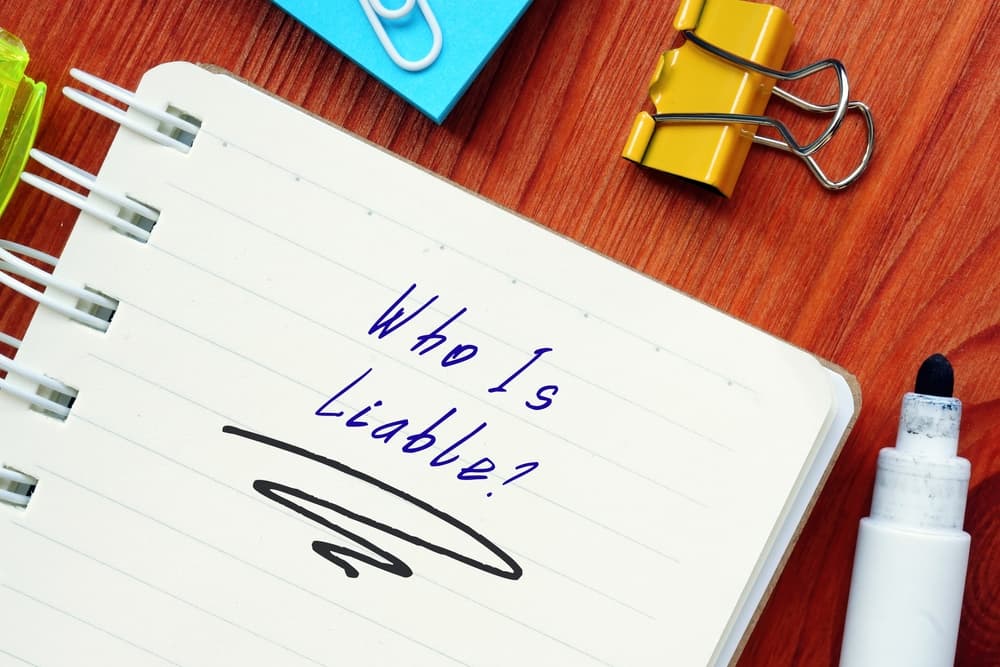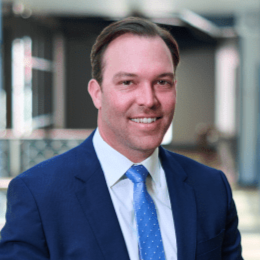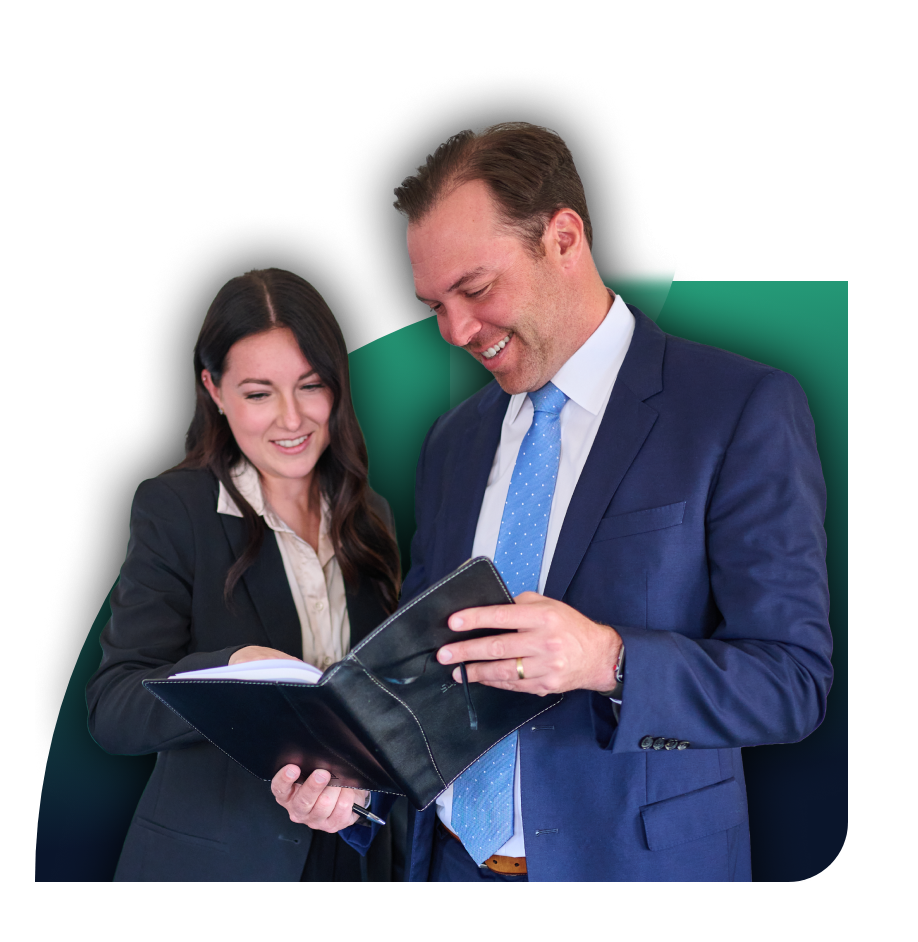A slip and fall accident occurs when a person slips and falls due to the presence of a hazard on someone else’s property. Wet floors and entrances, snow and ice accumulation, and slippery walkways often cause these accidents.
When such an accident occurs, and the victim suffers injuries, they may wonder about their legal options and whether they can obtain monetary compensation for their resulting medical expenses and other damages and losses. The question of compensation after a slip and fall depends on liability. You can recover damages if you can prove that another party – most often the property owner in slip and fall cases – was liable.
Read more below about liability in slip and fall accidents and identifying the potentially liable parties in various scenarios. If you suffered injuries, consult a slip and fall lawyer as soon as possible.
What Do You Need to Prove to Establish Liability in a Slip and Fall Case?

Falls are a leading cause of accidental non-fatal injuries across the United States, and many of those falls occur due to slipping on wet or slippery floors and walkways. To establish liability in a slip and fall case, the injured party – known as the plaintiff – must prove several elements:
- Duty of care. The plaintiff must demonstrate that the property owner had a legal responsibility to ensure their property was safe or, in other words, owed them a duty of care based on their status on the property.
- Breach of duty. The plaintiff must show that the property owner neglected this responsibility by failing to make the premises safe.
- Causation. There must be a link between the property owner’s breach and the slip and fall accident.
- Damages. The injured party must provide evidence of the injuries and losses from the accident.
Slip and fall cases fall under the doctrine of “premises liability,” which, in turn, is based on the concept of reasonableness of the owner’s conduct. It means that the property owner must always take reasonable steps to prevent harm to others on their property. Generally, a person injured on someone else’s property is entitled to compensation if they can prove the following:
- The owner of the property (a) knew or should have known about the hazard that caused the accident and (b) failed to fix it;
- The hazard caused the slip and fall accident that resulted in the person’s injuries; and
- The injured person had a legal right to be on the property at the time of the accident and was not trespassing.
In some cases, proving these elements can be challenging and difficult without an in-depth understanding of the legal nuances of premises liability law. That is why you should seek legal counsel from an experienced lawyer who can handle every aspect of your claim.
Factors That Affect Liability in Slip and Fall Cases
Several factors come into play when determining liability in a slip and fall case, including:
- Property owner’s conduct. Did the property owner actively maintain the property, conducting regular checks and fixing known hazards?
- Reasonableness. Was the dangerous condition something a reasonable person should have noticed and rectified?
- Plaintiff’s conduct. Did the injured person contribute to the accident through their own carelessness or failure to pay attention?
- Knowledge of the danger. Was the risky condition obvious or marked in a way that the injured person could have avoided it?
- Legitimacy of presence. Was the injured party lawfully present on the property? Trespassers may have different rights compared to invitees or licensees.
Liability in slip and fall cases is nuanced and dependent on the specific circumstances of each incident. Property owners may employ various defenses, claiming that they exercised reasonable care or that the plaintiff failed to notice warning signs, for example. Consequently, these cases often require thorough investigation and compelling proof.
Potentially Liable Parties in Slip and Fall Accidents
Even though, as mentioned earlier, liability can vary depending on each case's circumstances, several parties can potentially be held responsible.
Property Owners
In many cases, the owner of the property where the accident occurred may be liable. Property owners have a duty to ensure that their premises are safe for visitors. If the accident was due to a hazardous condition that the owner knew about—or should have known about—then the owner might be responsible for the victim's injuries.
Tenants or Leaseholders
If a business or individual is leasing property and you slip and fall within the space they control, they can be held liable. This is particularly the case if the leaseholder has assumed responsibility for maintaining the premises in a safe condition as part of their lease agreement.
Business Operators or Proprietors
Business operators have a responsibility to keep their establishments safe for customers. This includes:
- Promptly addressing spills.
- Ensuring walkways are clear and in good repair.
- Properly marking any hazards that they cannot immediately address.
Property Managers or Landlords
Landlords or property managers who fail to maintain common areas, such as hallways, stairwells, and sidewalks, may be liable for slip and fall accidents. These individuals or entities are usually responsible for the upkeep and repair of such areas and must carry out regular maintenance.
Homeowners’ or Condominium Associations
Associations that govern certain residential areas may be liable if they are responsible for maintaining shared spaces where slip and fall incidents occur. The bylaws and governance documents of the association can shed light on the extent of their responsibilities.
Maintenance Companies or Contractors
Sometimes, businesses outsource the maintenance of their properties to third parties. If a contract exists between the property owner and a maintenance company that neglects to keep the property safe, resulting in someone slipping and falling, that company may bear fault for the accident.
Government Entities
Slips and falls on government property can be particularly complex due to sovereign immunity laws, which sometimes protect government entities from lawsuits. However, there are exceptions to sovereign immunity that a lawyer must explore.
Liability in Various Slip and Fall Accident Scenarios

Slip and fall accidents can happen anywhere and at any time, which is why determining liability often depends on the specifics of each case. Let’s review the common slip and fall accident scenarios and identify potentially liable parties in each of them:
Injured at Someone’s Home
When an accident occurs inside someone’s home, the homeowner may be liable if there was a dangerous condition they knew about (or should have known about) and failed to address or warn guests. Under the doctrine of premises liability, homeowners have a duty to ensure their property is reasonably safe for visitors. When determining the homeowner’s liability in this scenario, a slip and fall attorney can consider the following questions:
- Was there a known hazard that the homeowner neglected?
- Did the homeowner fail to warn the guest about potential dangers?
- Was the guest acting in a reckless manner that contributed to the accident?
Injured on Private Walkway
If a slip and fall accident happens on a private walkway, such as the path leading up to someone’s home, the owner of the walkway might be responsible if their negligence led to the unsafe conditions that caused the accident. When determining the owner’s liability in this scenario, a slip and fall lawyer will examine:
- Was the walkway improperly maintained (i.e., icy, waterlogged, cracked)?
- Are there local laws that dictate how owners must handle private walkway maintenance?
Injured on Commercial Property
Commercial properties include shopping malls, restaurants, and stores. Owners of these properties have a high duty of care to ensure their premises are safe for customers and employees. When an accident occurs due to neglect in addressing potential hazards, liability can often fall on the business owner. When determining the business owner’s liability in this scenario, the following questions can arise:
- Was the hazard obvious and known to the owner or the business’s staff but left unaddressed?
- Were there any warning signs placed near the hazard?
- Did the business owner or employees regularly inspect the premises for potential risks?
Injured on Government Property
Slip and fall accidents on government property, like post offices or public libraries, involve unique challenges because government entities often have protection by sovereign immunity. However, they can still face injury claims under certain circumstances through the administrative procedures of the government entity. In Missouri, for example, sovereign immunity limits the maximum amount of money a person can get when they sue the government. In 2024, that limit is $505,520 per person in a single accident.
When determining a government entity’s liability for a slip and fall, an attorney might address:
- Was there gross negligence on the part of the government entity in maintaining safe conditions?
- Was there a failure to correct a known problem within a reasonable time frame?
- Does the claim follow specific guidelines set for filing against a government entity?
Injured on a Public Walkway or Road
Liability for injuries on public walkways or roads often falls on the government body responsible for maintaining those areas, be it a city, county, or state. Generally, these entities must have been aware of the dangerous condition and failed to repair it to be held liable. When determining a government entity’s liability in this scenario, consider the following:
- Is there evidence that the government entity knew about the dangerous condition?
- Was there sufficient time to address the hazard before the incident occurred?
- Were there any attempts made by the government to warn the public about the risk?
As you can see, each case has several variables that affect liability in a slip and fall accident. That is why you might want to schedule a consultation with a slip and fall lawyer who can determine liability in your specific situation.
How Do You Prove Liability in a Slip and Fall Accident?
In any slip and fall accident case, the injured person must present sufficient evidence to prove the liable party’s negligence. Depending on the circumstances of the slip and fall, you may use the following types of evidence:
- Photos taken at the scene of the slip and fall
- Surveillance camera footage
- Inspection and maintenance records
- Eyewitness testimony
- The accident report prepared after the accident
- Expert witness testimony if necessary
A slip and fall attorney can collect all available evidence to strengthen your slip and fall accident case and ensure the liable parties are held accountable. If your case is headed to court, you need to keep in mind that the time you have to initiate legal action is limited by the statute of limitations, which differs from one state to another. In Missouri, for example, injured victims have five years from the date of the injury to file a lawsuit against the liable party (MO Rev Stat § 516.120).
How a Lawyer Can Help You With Your Slip and Fall Claim
When pursuing a personal injury claim after a slip and fall accident, do not expect it to be an easy and straightforward process, even if you think you have a solid case and strong evidence to prove the other party’s liability. Property and business owners, as well as their insurance companies, can use a variety of defense strategies to fight against liability claims, which is why you may need a skilled lawyer on your side to level the playing field. Here are some of the ways a slip and fall accident lawyer can:
- Investigate the accident
- Collect and preserve evidence that helps prove the responsible party’s liability
- Advise you on your options for compensation, which may include filing a claim against the liable party’s insurance company
- Determine the value of your claim by calculating your past and future expenses and losses
- Prepare and submit the necessary paperwork for your claim
- Negotiate with the other party and insurance companies on your behalf
- Take your case to court if necessary and vigorously represent your interests before a judge or jury

With a personal injury attorney in Creve Coeur, you can get a definitive answer to your question, “Who is liable in my slip and fall accident?” and know what to expect from your case.


